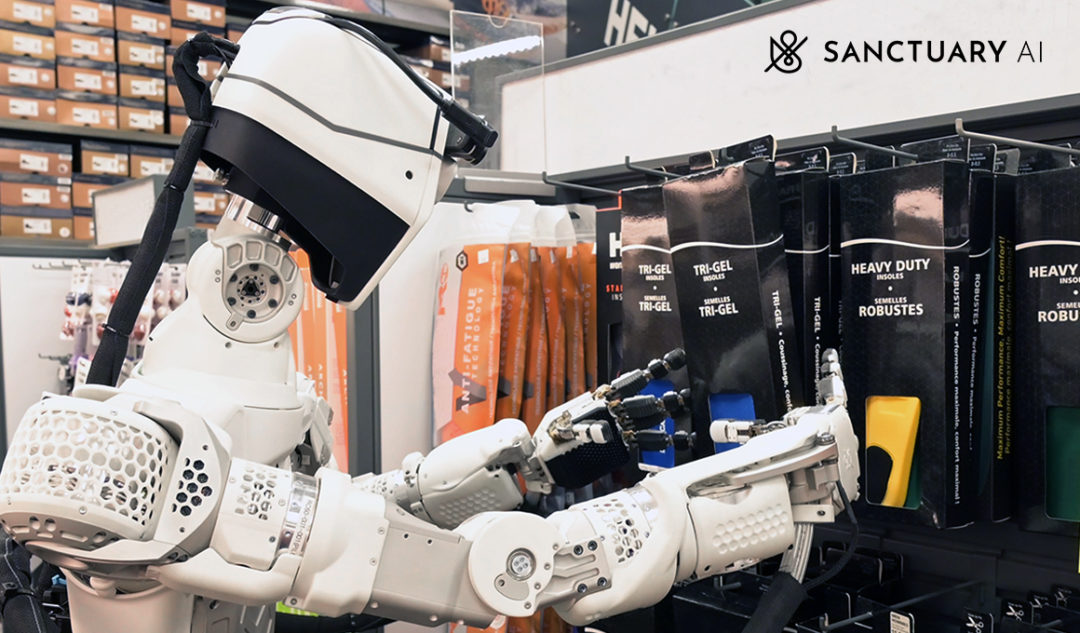Accenture invests in humanoid robot firm Sanctuary AI
Canadian company’s Phoenix model could fill jobs in parcel, manufacturing, retail, and logistics

Consulting firm Accenture today said it has invested in Sanctuary AI, a Canadian developer of humanoid, general-purpose robots that could help fill jobs left empty by global labor shortages in the parcel, manufacturing, retail, and logistics sectors.
Terms of the deal were not disclosed, although the company said it made the investment through its financial arm, Accenture Ventures.
Vancouver, British Columbia-based Sanctuary AI says its Phoenix model robot can perform more than 100 different tasks. In a deployment at a Mark’s retail store in Langley, BC, last year, the unit used its robotic hands to choose and pack merchandise, and to clean, tag, label, and fold items.
“AI-powered humanoid robots are essential to reinventing work and supporting human workers as labor shortage is becoming an issue in many countries and industries,” Joe Lui, Accenture’s global advanced automation and robotics lead, said in a release. “Sanctuary AI’s advanced AI platform trains robots to react to their environment and perform new tasks with precision in a very short time. We see huge potential for their robots in post and parcel, manufacturing, retail and logistics warehousing operations, where they could complement and collaborate with human workers and automate tasks that traditional robotics can’t.”
The firm’s robots mark the latest entry into the emerging humanoid robotics sector, which also includes examples like Apptronik’s Apollo unit and Agility Robotics’ Digit product.
Related Articles
Copyright ©2024. All Rights ReservedDesign, CMS, Hosting & Web Development :: ePublishing